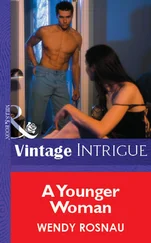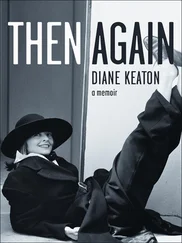‘July 1954: Bored! Bored! Bored! I went to sea to see the world, and what did I see? I saw the sea! Finished the book I brought with me: The Greek Passion . Nothing to read. Nothing to do. I guess I should have brought Boswell after all. Will these long days never end? Ass-in-igned moved out last night while the rest of us were having dinner. Where to? She hasn’t jumped overboard, I guess. Maybe there is a first-class deck hidden on this ship where she’s had herself ass-in-igned to live like a queen in clover.’
How I would relish days and nights at sea right now: no telephone, no television, no interruptions, no demands beyond breathing in and out the salty blue air. And now I have come to the age of rereading, how many more than one book would I pack for such a journey! What was tedious in the long, long days to spare of youth becomes on short time a welcome respite from work and a rehearsal for eternal rest.
Ass-in-igned’s name was Barbara. She was from a small state college and had just turned nineteen. A pale girl, she was too plump and languid to have climbed comfortably to the upper berth. We learned later that while we were all at dinner on 7 July, the night before landfall, a steward found her in a diabetic coma. He carried her to the infirmary where she died a few hours later. Barbara’s death was not announced publicly; we learned about it on the shipboard grapevine and, as the news spread, students gathered in mutinous groups on the decks. Damn it. Boredom is an affliction of youth; death should rightly be an affliction of old age. Betrayal of that prevailing logic made us all furious at someone or something.
‘1954: How could it have happened? They say the drug needed to save her was not on board because her parents had not informed the ship’s doctor of her condition. How could it have happened? Because the family doctor had not told them how serious the condition was. Or so I have heard. And how the hell could it have happened? How, how, how the hell did any of it happen? Because. Because. Because. It is too stupid that she is dead.’
Only now, fifty years on and the mother of a child of my own, do I think of the dead girl with pain and melancholy instead of anger. Only now do I think of her at all. Perhaps we were less sensitive in the 1950s, before flying doctors and sophisticated medication and grief counsellors, when life was that much younger and closer to its primal cave. By the time we sighted land, the waters had closed over Barbara’s memory as they have throughout the ages over graves of sailors lost at sea.
‘Today is 8 July 1954. In one month, three weeks and five days I will be nineteen. Nineteen! Getting on a bit! We have been at sea for seven days and should see land any moment now. Days without end on the ocean are like long sentences with no punctuation. I told Evelyn that I thought days at sea were Henry James without commas! She didn’t seem to get it. Maybe natural science majors don’t have to read Henry James? Do they have to read anything? Maybe they do it all by touch.’
Ha! Very funny! Your brother became a doctor in the end, and is he not to this day the most avid reader I know, obsessive almost? He reads for the joy of acquiring information, the more recherché it is the more joyous is he, history and biography, rarely fiction, never poetry, or so I dare say. The tale of how my new baby brother and only sibling was introduced to me sixty-odd years ago is one of my cherished false memories. As I like to recall, they brought the bundle home from hospital, plunked him into the baby scales set up on the kitchen table and said: ‘Irma, meet your seven-pound-brother-the-doctor …’ I was not yet four years old at the time and this had to be an invention of my later life. Nevertheless, there is no denying that conception is contaminated by preconception and parental love in general spoiled by ambition. Names given babies are tiny epitaphs in advance. My brother’s name, for instance, Michael David, was a parental ploy; even after it was changed briefly to Michael Dean during an episode of Semitic collywobbles when American medical schools were rumoured to have begun imposing Jewish quotas, the poor little tyke remained stuck with the initials MD. As for me, my name, Irma, is practically an anagram of my mother’s name: Myra. My middle name, Lois on my birth certificate but Louise or Leah depending on which member of my family I asked, provided the initials ILK as in: you will be of that ILK and you will like it. When it came to my own introduction to waiting family members, in one of my rummages I found and have kept in my possession a letter my mother sent to her mother, who was still back in Indiana, announcing my birth. ‘It’s a girl,’ she wrote in her tight, controlled backhand. ‘Drat it!’
Anger has not been one of my outstanding characteristics; the moment insult enters my system it encounters my grotesquely enlarged sense of responsibility and is converted immediately into guilt and hurt. As I grow older I understand and will at last accept that mine was the final generation of females in Western society to be born into an ancient tradition that found each newborn daughter a new burden. Love your little girl if you can, but above love and, over all, keep her safe for a stranger’s pleasure and another family’s benefit. To that end, let her possess beauty but only to a modest degree, so it shouldn’t incite desire among the goyim. As for education, an adornment for girls of my ilk, may it be decorative yet not so flashy or deep that it threatens her good sense or the vanity of her future husband, not so costly that it subtracts one penny from the more important school fees of her brothers. Margaret Mead, eminent graduate of Barnard College for Women, in the address she delivered to my graduating class in 1956 congratulated us on having accumulated great words and thoughts and poems to mull over in the future while we prepared dinner for our families and washed dishes at our kitchen sinks. Many years later I realised the lady was being ironical and provocative. But her audience was too young for irony. Besides, we were American, weren’t we? And thus we were indoctrinated from the cradle with characteristic literal thinking. At the time, her words made me unhappy and a little provoked, too. Oh, so few of us girls then became anthropologists or lawyers or doctors! Even fewer put out to sea.
The late teenager I used to be, I mean you there, intense and long-haired youngster leaning on the rail and eastward-bound, you are lacking in self-confidence, lacking in self-awareness and, to a great degree, lacking in self. I know, I remember, how you sometimes drift away to hover in a high corner of the room watching your family at dinner and hearing yourself ask, please, for the salt or water. You did not always feel all there; you don’t now. But you had a strong sense that your self had not yet arrived, was waiting somewhere in the wings. The selfish years have ended now; your self dropped in, barely made herself known and is departing. I hardly knew anything about myself at all back then. I did not even realise, for example, that I was exhausting most of my lifetime’s allowance of rage in battles with my father. They marked my adolescence, those screaming matches toe to toe with Daddy, and as long as each one lasted I felt an inkling of my own weight and stamina. Mother stood in the background during these struggles: has sly memory superimposed a smile on her face? Her own father died when she was barely seven; is it possible she thought this late and agonising parturition was what fathers were for? No. It is more likely that my mother believed it was not my battle I fought with the man she regretted having married, but her own. And what were our endless screaming matches ostensibly about? About right and wrong, tolerance and intolerance, food, entertainment, what was safe and what was dangerous: all the murderous and petty strategies of revolution.
Читать дальше
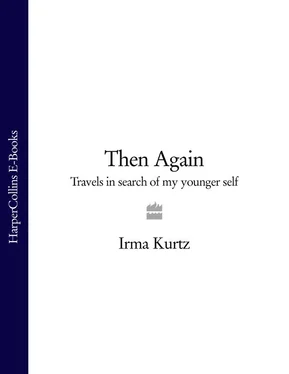




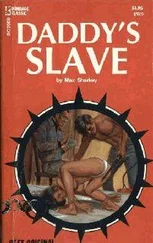
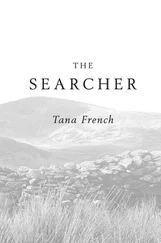
![Marcel Proust - In Search of Lost Time [volumes 1 to 7]](/books/579170/marcel-proust-in-search-of-lost-time-volumes-1-to-thumb.webp)
